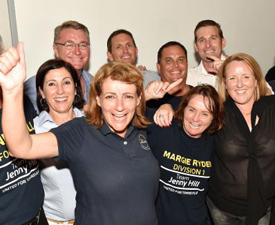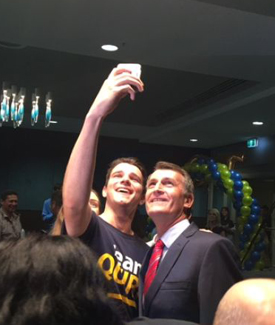Weekly column from Council Courier e-newsletter by CEO Greg Hallam, Friday 1 April 2016.
The detailed 2016 council election results tell an interesting story about the travails of modern politics and campaigning.
As we have said a number of times there was relative political peace and quiet in the major provincial cities and South East Queensland. Of course there were some defeats but, historically and statistically, it was a normal election.
That was not true in the bush or indigenous communities where the turnover rate of mayors and councillors was substantially greater. Ditto, the area north of the Tropic of Capricorn for some reason.

Despite some defeats Queensland's number of women mayors increased by three and perhaps four depending upon the result in the deferred Lockyer Valley elections on 16 April.
Interestingly, along the length of the Flinders Highway from Townsville to Mount Isa, five of the seven mayors are now female.
In the councillor ranks women held their own with the overall percentage of women being elected staying remarkably similar to the 2012 result.
It would be entirely remiss not to acknowledge the huge amount of local government experience that went with the defeat of some long-time mayors at this poll. We should all be grateful for the civic spirit embodied by the likes of John Brent, Pedro Stephen, Fred Pascoe, Deirdre Comerford, Robert Loughnan and Joe Owens.
This was not an election fought on hip pocket or post amalgamation issues. It was about the perceptions of the style of local administration, real or not. Where council was “on the nose" mayors and councillors were defeated.
Popular mayors romped it in with many scoring results of 60, 70 and even 80 percent plus support from their community. Voters do not sit on the fence any longer. Where they perceived division in the council they punished those leaders. The punters were more than prepared to throw out first term mayors if they did not pass political muster.
There are no two term guarantees under the four year term system in place in Queensland local government since 2000.

Fortunately, in almost all cases where lots of mud was thrown during the campaign, it backfired. Indeed, in one of the most egregious examples of dirty campaigning was highlighted this week when the Crime and Corruption Commission cleared the Lockyer Valley Regional Council and its late mayor, Steve Jones, of any wrongdoing after they were the subject of false and vicious corruption claims involving the Grantham land swap process.
Staying clean and focused on the issues in campaigns worked to a large degree.
Positivity, sober commitments, fiscal restraint, and promises of openness and community engagement in decision making seemed to work very well in 2016.
So there you have it from an overall statue wide perspective. Of course there will be many untold local stories.
To complete the 2016 council election picture, we will consult member councils and lodge a submission to the review of the Electoral Commission of Queensland’s conduct of the 76 council polls and continue to research the potential creation of an independent election monitor to keep a watch on aspects of the 2020 council elections.